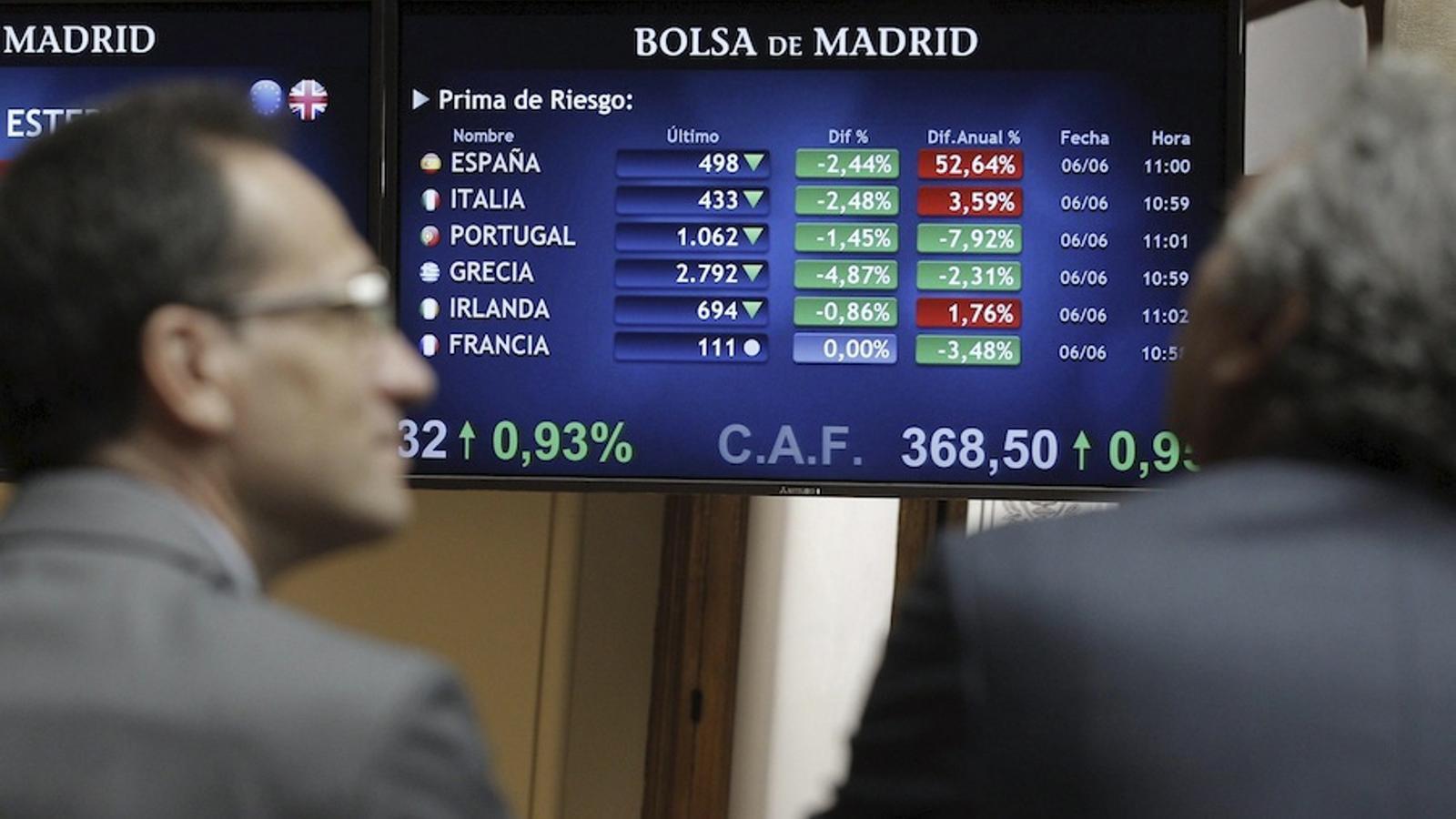The crisis in France has sparked a debate about the risk premium: Is it still a reliable indicator?
The indicator is calculated with Germany as a reference, which is no longer the strong economy of recent decades.


BarcelonaThe concept of the risk premium has once again made headlines in recent weeks, despite being far removed from the economic situation of the toughest years of the financial crisis. The reason: political crisis in France –derived from the complex economic context in which the country is immersed– has left the French risk premium at extremely high levels, and on some days it has even exceeded that of Italy. At the close of this Friday, the French indicator stood at 80 points, close to the Italian (84) and far from the economies that until not so many years ago were considered to be at greater risk – the PIGS –, such as Spain (57), Greece (70) or Portugal (42).
Let's take it step by step: the risk premium is understood to be the extra price that a country pays to finance itself in the markets compared to another country, which in the case of the eurozone is Germany. Thus, this concept for a European country is the difference between its 10-year bond and the German 10-year bond, the so-called bund. The higher a country's risk, the more it will have to compensate investors to acquire its debt. This is, therefore, the premium (or yield) offered by a country's public debt to attract investors. This measures investor confidence in the soundness of the country's economy or, conversely, the risk of bankruptcy.
The French case, however, has brought to the fore the debate on the reliability of the risk premium as a key indicator for defining an economy's solvency. The fact is that in recent months the premium has improved for virtually all countries, driven also by the fact that Germany's performance has worsened and, therefore, the gap with the other eurozone countries has narrowed.
Germany, the benchmark
The reason Germany is used as the benchmark for calculating the premium is because it has always been considered the strongest and most secure economy in the region. In fact, during the tough years of the crisis (2010-2013), German public accounts showed robustness and solvency. Furthermore, it should be compared with an economy "that has the same monetary policy," notes Omar Rachedi, professor in the Department of Economics at Esade. "Therefore, it would make no sense to compare Spain, for example, with the United States," he maintains.
Now, however, this is no longer exactly the case: Germany remains a stable economy, but it is practically not growing, and since the Russian invasion of Ukraine, it has been greatly weakened. "It has always been a country with solid growth, and it seemed that the risk of default was practically zero, but it is true that this approach has some problems: it has grown little in the last decade, and the strong fiscal stimuli announced by Angela Merkel increased the bond's yield," explains Rachedi. Thus, given that the benchmark country has worsened, the gap with the other countries has inevitably improved.
However, Alfons Fernández Pascual, economist and member of the Financial Economics Committee of the College of Economists (CEC), assures that the market still rewards Germany: "What the market is saying is that it still has the lowest cost of financing in the entire eurozone," he points out. "It's not growing much, but it's stable," he concludes.
Another era
"If we look back at 2012, the euro was on the verge of collapse, the risk premium in Spain and Italy was around 500 and 600 points... At that time the situation was very dramatic," recalls Pablo Larraga, professor of finance at UPF-BSM. "The risk premium is still significant, but the context is different now. Germany, despite its GDP declines, remains the benchmark; we must also consider the ratings: This is a country that is AAA, and Spain stopped being triple A in 2010 and will not be again for many years," says Larraga. flight to quality [It wants quality], because the Germanic country said it would have to spend a lot of money on defense, which means generating a deficit and increasing Germany's public debt balance; at this point, solvency relative to other countries may be approaching," Larraga reasons. flight to quality It is the phenomenon that occurs when, in times of tension in a country, investors sell that country's bonds and buy German bonds, for their safety.
Alternatives
The risk premium is not the only way to assess a country's solvency, and in fact, according to Rachedi, a professor at Esade, other variables should be taken into account. "Germany has started to slow down significantly, and therefore, by comparing Spain with Germany, we are missing out on part of the premium, and Spain's solvency may be overvalued," he points out.
"In times of instability, we usually see a much higher premium that not only reflects the real situation but also the convenience premium, which is the extra value that investors are willing to pay to own a safe or rich value; thus, even if Germany and Spain had the same probability of buying the debt, investors accept it." bundos Germans," says Rachedi. In this sense, the Esade professor proposes that, instead of using the bund, the OIS is used as a reference (overnight index swap), which is a financial contract that exchanges a fixed rate for a variable one based on an overnight index. "If you compare the bund With the OIS, on average they are very similar types, but in times of tension the type of bund sinks much more than the OIS," describes Rachedi.
Another way to measure country risk is through the credit default swap (CDS), which are contracts that insure certain financial instruments in the event of default by the issuer. According to Rachedi, another option would be to stop looking at other countries and look solely at Spain through CDS, which are "insurance against the risk of default," he explains. Thus, the 10-year CDS premium directly reflects the probability of a market failing. However, "Germany will continue to be a leading economy and continues to inspire confidence; it will take a long time for this situation to change," the experts conclude.
